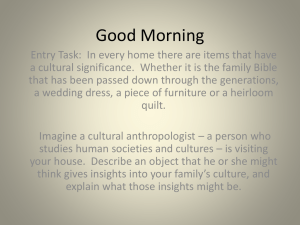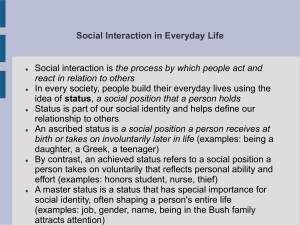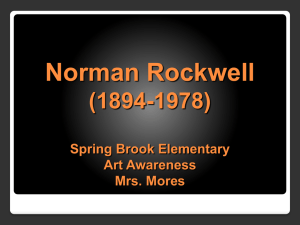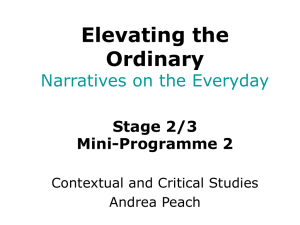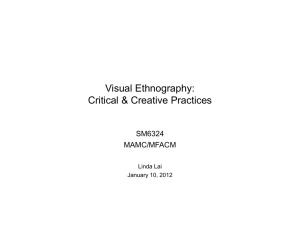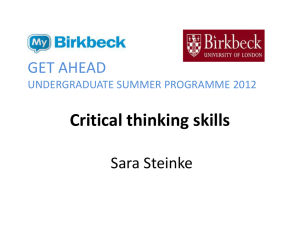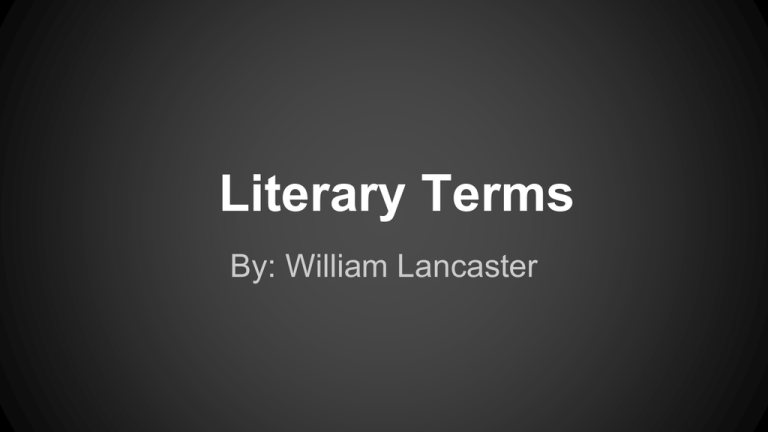
Literary Terms
By: William Lancaster
Figurative Language
Imagery- The use of words to depict a picture or idea
Example from Hamlet-
Example from everyday use-
“Doubt thou the stars are fire;
On a starry winter night in Portugal
Doubt that the sun doth move;
Where the ocean kissed the southern
shore
Doubt truth to be a liar;
But never doubt I love.”
There a dream I never thought would
come to pass
Came and went like time spent through an
hourglass
-Teena Marie, “Portuguese Love”
Simile- A comparison of two things using “like” or “as”.
Example from Hamlet-
Example from everyday use-
“May thy heart sink as the great orb at the
end of the day”
As busy as a bee
As happy as a clam
Life is like a box of chocolates, you never
know what you're going to get
Metaphor- A comparison of two things; does not need to use
“like” or “as”
Example from Hamlet-
Example from everyday use-
“My father's brother, but no more like my
father than I to Hercules”
Sea of grief
The light of my life
Time is a thief
Personification- Giving human characteristics to something
nonhuman
Example from Hamlet-
Example from everyday use-
“My fate cries out, and makes each petty
artery in this body as hardy as the
Nemean lion's nerve.”
The stars danced playfully in the moonlit
sky
The run down house appeared depressed
Apostrophe- The act of addressing some abstraction or
personification that is not physically present
Example from Hamlet-
Example from everyday use-
“Do it, England; for like the hectic in my blood he
rages,
Twinkle, twinkle, little star, How I wonder
what you are. Up above the world so
high, Like a diamond in the sky
And thou must cure me: till I know 'tis done,
Howe'er my haps, my joys were ne'er begun.”
Symbolism- The use of symbols to represent ideas or qualities
Example from Hamlet-
Example from everyday use-
“…Upon my secure hour thy uncle stole
Black is used to represent death or evil
White stands for life and purity
With juice of cursed hebenon in a vial,
And in the porches of my ears did pour…”
Allegory- Something that has a greater meaning
Example from Hamlet-
Example from everyday use-
"A little more than kin, and less than kind”
All the world's a stage,
And all the men and women merely
players;
Hamlet states that Claudius is related to
him in two ways now, stepfather and
uncle, yet still is not really either.
they have their exits and their entrances;
And one man in his time plays many parts
Paradox- A person, thing, or situation exhibiting an apparently
contradictory nature
Example from Hamlet-
Example from everyday use-
“O, that this too too solid flesh would melt,
You can save money by spending it
Thaw, and resolve itself into a dew,
Wise fool
Or that the Everlasting had not fixed
Bittersweet
His canon 'gainst self-slaughter. O God, God,
How weary, stale, flat, and unprofitable
Seem to me all the uses of this world!”
Hyperbole- An over-exaggeration of something
Example from Hamlet-
Example from everyday use-
“O, my offense is rank, it smells to heaven,
It hath the primal eldest curse upon't…”
It doesn't get better than this
I am so hungry I could eat a horse.
Understatement- An under-exaggeration of something
Example from Hamlet-
Example from everyday use-
Claudius claims that he is afraid of having
Hamlet so close to him. He says claims
Hamlet is “mad” in order to cover up
what he is really doing.
The English test was not that hard, you
probably don’t even need to study.
Irony- The use of words to convey a meaning that is the opposite of its
literal meaning
Example from Hamlet-
Example from everyday use-
Claudius tells Hamlet to think of him a
father, yet he killed Hamlet’s real father.
As an audience member, you realize that if
a character walks into an abandoned
warehouse, chances are a killer is
waiting... but because you are a member
of the audience you cannot disclose the
information to the character
Chiasmus- A reversal in the order of words in two otherwise parallel
phrases
Example from Hamlet-
Example from everyday use-
“Be not too tame neither, but
He went to the country, to the town went
she.
let your own discretion be your tutor.
Suit the action to the word,
the word to the action.”
Metonymy- Consists of the use of the name of one object or concept
for that of another to which it is related, or of which it is a part
Example from Hamlet-
Example from everyday use-
Denmark- Old Hamlet
Norway- Fortinbras
The pen is mightier than the sword
The White House
Synecdoche- A figure of speech in which a part is used for the whole
or the whole for a part, the special for the general or the general for the
special
Example from Hamlet-
Example from everyday use-
“There were six guns out on the moor”
“sails” is often used to refer to a whole
ship.
"hired hands" can be used to refer to
workmen.
Musical Devices
Alliteration- The commencement of two or more stressed syllables of
a word group either with the same consonant sound or sound group or
with a vowel sound that may differ from syllable to syllable
Example from Hamlet-
Example from everyday use-
“For we will fetters put about this fear,
Good as gold
Which now goes too free-footed.”
Alice’s aunt ate apples and acorns around
August
Becky’s beagle barked and bayed,
becoming bothersome for Billy
Assonance- The repetition of the same vowel sound
Example from Hamlet-
Example from everyday use-
“With witchcraft of his wit, with traitorous
gifts,-- O wicked wit and gifts,”
Hear the mellow wedding bells -Edgar
Allen Poe
I must confess that in my quest I felt
depressed and restless
Consonance- The repetition of the same consonant sound
Example from Hamlet-
Example from everyday use-
“Till then Sit Still, my Soul: foul deeds will
rise though all the earth o'erwhelm them,
to men's eyes.”
He struck a streak of bad luck.
Rhyme- The same end sound of words
Example from Hamlet-
Example from everyday use-
“The time is out of joint. O cursed spite
That ever I was born to set it right”
villa and manilla
amore and favor
sure and kreatur
lay and lei
sitar and guitar
Rhythm- movement with uniform or patterned recurrence of a beat,
accent, or the like
Example from Hamlet-
Example from everyday use-
“Doubt thou the stars are fire;
Because I could not stop for Death,
Doubt that the sun doth move;
He kindly stopped for me;
Doubt truth to be a liar;
The carriage held but just ourselves
But never doubt I love.”
And Immortality.
6 beats per line and ABAB rhyme scheme.
6,8 beats per line and a slight rhyme
scheme
Each character talks with a different
Meter- A line of speech; can be set in patterns
Example from Hamlet-
Example from everyday use-
The “O, what a rogue and peasant slave
am I” speech is set in iambic
pentameter.
All poetry is written in meters.
These meters can be written in rhyme
scheme patterns and syllable patterns
....1.............. 2.................3..............4................ 5
Shall.I..|..com.PARE..|..thee.TO..|..a.SUM..|..mer’s
DAY
End-Stopped Line- A thought that is completed at the end of a line
of speech
Example from Hamlet-
Example from everyday use-
“Till then sit still, my soul: foul deeds will
rise though all the earth o'erwhelm them,
to men's eyes.”
I am not prone to weeping, as our sex
Commonly are; the want of which vain
dew
Perchance shall dry your pities; but I have
That honourable grief lodged here which
burns
Worse than tears drown.
Run-On Line- A thought that is left incomplete at the end of a line
of speech
Example from Hamlet-
Example from everyday use-
His canon 'gainst self-slaughter. O God,
God,
That's my last Duchess painted on the
wall,
Looking as if she were alive. I call
That piece a wonder, now
How weary, stale, flat, and unprofitable
Seem to me all the uses of this world!”
Both lines end without completing their
The first and second lines are left
incomplete.
Caesura- A break, pause, or interruption
Example from Hamlet-
Example from everyday use-
"To be,// or not to be, //that is the
question:Whether 'tis Nobler in the mind
to suffer The Slings and Arrows of
outrageous Fortune,Or to take Arms
against a Sea of troubles,And by
opposing end them:// to die, //to sleep”
He thought he'd 'list, perhaps,
Off-hand-like--just as I-Was out of work-had sold his traps-No other reason why.
Free Verse- A verse that does not follow a fixed metrical pattern
Example from Hamlet-
Example from everyday use-
“Indeed this counselor
All writing is written like this when it is
written without a pattern.
Is now most still, most secret, and most
grave,
Who was in life a foolish prating knave”
Uneven beats per line and no rhyme scheme.
Iambic Pentameter- A line containing 10 syllables
Example from Hamlet-
Example from everyday use-
“O that this too too solid flesh would melt,
Her vestal livery is but sick and green
Thaw, and resolve itself into a dew!
And none but fools do wear it; cast it offRomeo and Juliet
Or that the Everlasting had not fix’d
His canon ’gainst self-slaughter! O God! O
God!”
10 beats per line
Grammatical/Rhetorical Pauses- A pause in speech that is either
written in with punctuation or is implied
Example from Hamlet-
Example from everyday use-
Hamlet’s soliloquies are filled with pauses
that are mostly rhetorical, yet are
sometimes written in.
Most presidential debates have
grammatical pauses intended to let you
think about what that person said.
Concluding Couplet- The last two lines of speech that rhyme with
each other
Example from Hamlet-
Example from everyday use-
“Foul deeds will rise,
He that loves a rosy cheek
Or a coral lip admires,
Or from star-like eyes doth seek
Fuel to maintain his fires;
As old Time makes these decay,
So his flames must waste away.
Though all the earth's o'erwhelm them, to
men's eyes.”
But a smooth and steadfast mind,
Gentle thoughts, and calm desires,
Hearts with equal love combined,
Kindle never-dying fires: Where these are not, I despise
Lovely cheeks or lips or eyes.

